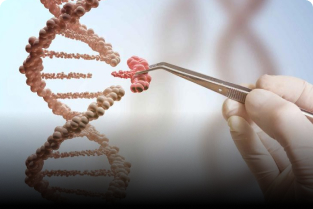Nanotechnology is an interdisciplinary field that merges physics, chemistry, biology, and engineering to manipulate materials at the molecular and atomic levels. Given the rapid advancements in nanotechnology and its applications in medicine, biotechnology, and genetic engineering, a pressing question arises: Can someone who has studied biotechnology and genetic engineering master themselves in nanotechnology?
Understanding the Overlap Between Biotechnology, Genetic Engineering, and Nanotechnology
1. Common Scientific Foundations
Biotechnology, genetic engineering, and nanotechnology share a fundamental scientific base, including molecular biology, chemistry, and physics. Biotechnologists and genetic engineers are already proficient in working with biomolecules such as DNA, RNA, and proteins, which are key components in bionanotechnology.
2. Applications of Nanotechnology in Biotechnology
Nanotechnology has made significant contributions to biotechnology, especially in:
- Drug Delivery Systems: Nanoparticles can be used to deliver drugs and genetic material precisely to target cells.
- Gene Therapy: Nano-carriers help in the efficient delivery of genetic modifications.
- Bio-imaging: Nano-based imaging tools enhance medical diagnostics and research.
- Tissue Engineering: Nanomaterials support the development of biocompatible scaffolds for regenerative medicine.
3. Skill Transferability
Biotechnologists and genetic engineers already possess expertise in molecular biology techniques, bioinformatics, and biomaterial interactions, which are essential in nanotechnology research. Their familiarity with biological systems provides them with an edge in applying nanotechnology for medical and biotechnological purposes.
Steps to Transition Into Nanotechnology
1. Acquiring Theoretical Knowledge
To gain expertise in nanotechnology, one must develop an understanding of nanoscale physics, nanomaterials, and nanofabrication techniques. This can be achieved by:
- Enrolling in online courses on nanotechnology from platforms like Coursera, edX, or MIT OpenCourseWare.
- Reading research papers and textbooks on nanomaterials and their biological applications.
2. Developing Practical Skills
Hands-on experience is crucial in mastering nanotechnology. A few ways to gain practical knowledge include:
- Participating in laboratory research projects involving nanomaterials.
- Attending workshops and training programs focused on nanotechnology applications in medicine and biotechnology.
- Learning computational techniques such as molecular modeling and simulations used in nanobiotechnology.
3. Pursuing Higher Education or Research Opportunities
A master’s degree or Ph.D. in nanotechnology, nanobiotechnology, or biomedical nanotechnology can provide in-depth expertise. Research collaborations with nanotech-focused laboratories can also be beneficial.
4. Networking with Experts in the Field
Engaging with professionals and researchers in nanotechnology through academic conferences, online forums, and professional associations like the International Society for Nanomedicine can help in gaining insights and career guidance.
Conclusion
Yes, someone with a background in biotechnology and genetic engineering can successfully transition into and master nanotechnology. The foundational knowledge in molecular biology and bioengineering provides a strong starting point. By acquiring additional knowledge in nanomaterials, practical lab experience, and engaging in research, biotechnologists and genetic engineers can make significant contributions to the field of nanotechnology.

